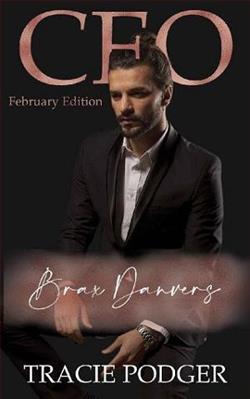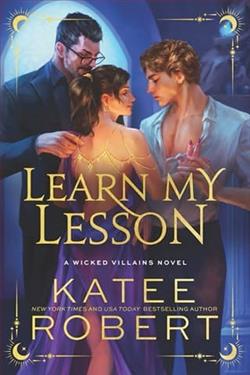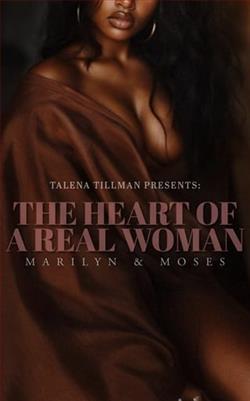Page 10 of Bonds of Fate
“War covered the land, and death and sickness became more prevalent. As it did, the Earth began to fall. Plants and animals became extinct, the climate devolved, and the natural resources failed to recover. Bored with Their failing creation when it no longer amused or thrived, The Sun God removed himself from this plane, leaving the Earth to settle even further into decline.
“But The Moon Goddess was fond of the Earth. Found it beautiful, even if its occupants no longer thought so. To save her, They devised a plan to balance out the humans’ impact. They created their own creatures, better in tune with themselves, with each other, and with the Earth. They made them in the image of her beloved nocturnal wolves. The creatures who would sing to her each night, who lived in packs, and who always followed the ways of the moon cycle.
“They made the Were-wolf stronger, faster, and in many ways smarter than the humans, and they had longevity that humans did not. But the balance had to go both ways, so there were fewer born. the Goddess also mimicked her beloved wolves and created alpha, beta, and omega, each with their strengths.
“They decreed that the Weres would live in packs as families so that they may experience the joys of family and increasethe probability that more offspring might be born because the humans continued to out-reproduce them, and the balance was incredibly delicate.”
“So. Cool,” Luca mutters, gnawing on two of Rowan’s fingers again, and it sounds liketho coowah.He is entranced with the romance of the Goddess stories, and this isn’t the first time he’s heard Finn tell it.
Nix has a tiny frown on his brow—it looks like he is having trouble processing the new information. Maybe even skeptical. “That sounds like a fairy tale, and I do love a romantic story, but where does that leave us–me–now?I was assigned male at birth, and what? Now I’m alpha, beta, omega? What?”
“I’m an alpha, as are Jay, Gideon, Grayson, and Rowan. Leo and Luca are betas. ”
“And I’m an omega? Okay, but what does itmean? When are you getting to theoh shitparts from earlier? This can’t be it. Why are you stalling?”
He’s fidgety and suddenly jumps up to start pacing. Both Luca and Rowan are doing remarkably well at keeping their scents controlled, but Finn can feel the tension rising in their little bubble.
It’s remarkable. Typically, only enigmas can emit enough pheromones to influence the mood of a group of Weres. Finn should have noticed it earlier—at the hospital, when Nix’s sexual energy filled the room, or this morning when his anger had been palpable enough that, coupled with the retelling of Nix’s near death, had been enough to send Gideon to the gym in a rage.
“Fascinating,” he murmurs but has to feel chastened at his omega’s less-than-impressed look. “Sorry. How about a tiny biology lesson next? I promise I’m not stalling, Nix. I’ll finish this up, and we can move on. I believe that will answer some further questions”
Nix narrows his eyes before giving him a single nod as he perches on the edge of the table beside him.
“Alphas, betas, and omegas lived in packs, and they each had their strengths and weaknesses. Alphas, both female and male, are usually stronger, faster, more durable, and less inclined to injury—but they are also more aggressive, highly sexual, and less inclined to harmony. They’re dominant by nature, too.
“Betas, on the other hand, are peacemakers—still with all the enhanced senses of a Were, but more likely to cooperate than instigate. They’re less controlled by their Were instincts, with clearer heads, so to speak.”
Nix’s next question was a surprise. “But gender is a fluid concept. I get that historically, alphas were running around banging heads and dragging their mates around by the hair, but Jamie isn’t like that, and you’rereallynot. So, time has surely caused some evolution, right?”
Impressed, Finn feels a swell of pride in his intelligent mate—a decidedly alpha characteristic that embarrasses him, given that it’s an old-fashioned view. “You’re right, Nix. Modernity has changed how Weres perceive these characteristics, and until recently, it was believed that time had diluted them genetically as well.
“But in the past fifty years, there’s been a resurgence of the original genome structures. Most people think enigma alphas are disappearing, but recent studies show that they’re actually becoming more common. A colleague of mine estimates that the American Were Registry now contains almost ten thousand enigmas—double the number from twenty-five years ago. Our pack has an unprecedented three: Jay, Grayson, and our newest, Rowan. ”
“Quit telling everyone how new I am, asshole.”
Finn can’t help himself from poking the wolf because Rowan rises so beautifully to the bait every time, like clockwork. Hethinks he might still enjoy doing it forty years from now because it’s so satisfying.
“But you are! So fresh and new, like a baby.” It feels good to chuckle when the topic is heavy and even more so when Rowan gives him the finger.
Nix’s eyes are wide. “That sounds like a big deal, right? Like, statistically? What makes enigmas such a rare thing?”
“The verdict is still out about why we’re seeing more born, but they’re a bitmorealpha than the usual kind. They’re more aggressive, territorial, and sexual, with senses developed beyond the usual. As I mentioned earlier, Were science says it’s a sharp evolutionary turn, and they believe there’s evidence that it’s tied primarily to fertility. You’ve heard that the world is experiencing a general population decline?”
His mates nod. “Well, imagine the Were crisis is a hundred times worse. Weres are having a hard time conceiving. Most packs are struggling to have one or two newborns in a generation. Every member of our pack, except Leo, is an only child. Both his biological parents are alphas, too, which is even more impressive.”
“Still, statistically, the exceptions are usually packs with an enigma alpha, where fertility has shifted to a more ‘normal’ curve. Enigma alphas influence fertility rates at an almost recovery rate.”
“The enigma is all about babies?” This is news to Rowan, too, and not entirely unwelcome, judging by the burst of intoxicating spiced rum scent.
“It would seem that way. Fertility rates may be declining overall, but if the theory is correct and the current pattern holds, the human population will outstrip us and destroy the balance in less than four generations.”
“And that’s bad for the world—wars, famine, climate change. It’s already getting bad, isn’t it?” Nix is thoughtful.
“It is.” Finn closes the blue book and grabs the second biology one. Now for the hard part.
“Why not just turn humans into Weres like Jamie did for me and get back the balance that way?”
“That’s a brilliant question. When humans are turned, they become betas. Transitioned betas can’t reproduce, and while they may shift the balance for a single generation, large numbers of turned humans would disrupt the alliance we maintain under the Human-Were Accord without significantly affecting the long-term fecundity needed to improve the total fertility rate.”















